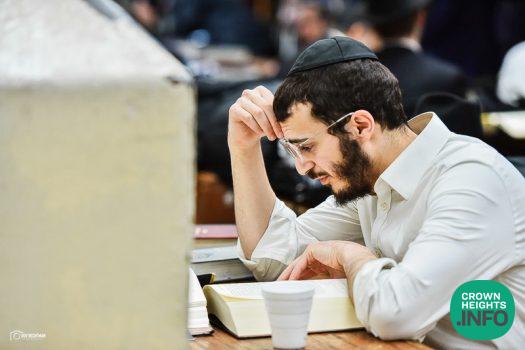
Motivation for A Teacher of “Weaker” Students
Question:
I am a very dedicated and good melamed in the 8th grade of a Chabad Cheder. I work hard to instill Ahavas Hatorah in my talmidim. I usually get the “stronger” (smarter) class and I’m excited to come to Cheder every day. This year, the administration gave me the “weaker” class, and I am finding it very difficult to be motivated and excited to teach. I need chizzuk and I am wondering if the Rebbe ever addressed such a situation?
Answer:
Thank you for reaching out and I wish you much hatzlacha in your avodas hakodesh. Teachers do not always receive the recognition that they deserve, so I would like to publicly thank you for your obvious care, concern and dedication to chinuch.
In response to your actual question, the following are a few written responses of the Rebbe that should give you the necessary chizzuk and Torah perspective that you are seeking:
You Can Make a Bigger Difference
(1) “In response to your letter in which you write that you have less interest in teaching this year in comparison to the past years, because the current students are not on the academic level as the previous students:
It is understood that on the contrary: the current situation should motivate you more than the previous classes because you have the unique opportunity to really set and establish these students in the proper way. The entire purpose of man is to use his talents to “fix” — and make a difference — in your part of the world. This is especially true in regards to Jewish education, that it is your purpose to create more light in the world by spreading the light of Torah and Mitzvos.
(Our sages tell us that) “according to the pain is the reward”. Thus, especially these students whose natural talents and abilities are not so revealed, you have the true ability to fulfill the will of Hashem (and make a true difference). Hashem rewards “מדה כּנגד מדה – measure for measure”. When Hashem sees that despite all obstacles and inner challenges which come from the Yetzer Hara you were motivated and successful in teaching these students, Hashem will reward you in what you truly desire”. (Igros, Vol. 12, p. 84; #3894).
Weaker Students Can Prove to be More Successful
(2) “In regards to education, very often it is hard to evaluate the future growth of each student and their talents. It is very possible that these students that appear (superficially) simple, will — in the future — develop and reveal real talents or they will become really studious and will be more successful in their learning (and lives) than the naturally gifted students. It can be that specifically these (weaker) students will be the pride of the school and their teachers.
We have seen time and time again the tremendous positive effect of hasmada (diligent study) even when a student’s natural abilities are simple. In addition, we find that regarding many students, their true abilities (come out later) in a way that nobody would have estimated or imagined.” (Igros, Vol. 19, p. 284; #7285).
Balancing “Stronger” and “Weaker” Students
I would like to take this opportunity to address the “million-dollar question”: How does one balance having stronger and weaker students in one class? At what point does the school divide the classes and absorb the cost associated with it?
This basic question was asked of the Rebbe by Rabbi Zalman Serybranski of Melbourne, Australia. The Rebbe replied thus:
“In every educational institution they have this question, as it is impossible to have classes where all students are on the same level. Each administration needs to find the “middle ground” in which the classes are not too small and at the same time no students should lose out. It is very difficult to set guidelines as each place is different and things change from time to time.” (Igros, Vol. 12 p. 238; #4055)











